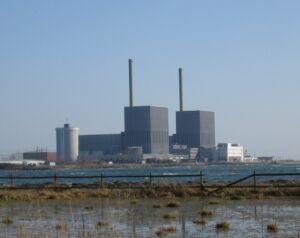News
Take over Swedish nuclear power station and cut CO2, Denmark advised
This article is more than 6 years old.
A nuclear engineer from Sweden has come up with a controversial idea to help Denmark get rid of its coal-fired power stations

Barsebäck nuclear power plant in Sweden has been decommissioned in 2015 (photo: Jorchr)
Ever since the ‘Atomkraft Nej Tak!’ (‘Atomic power? No thanks!’) movement of the mid-70s, there has been a groundswell of public opinion in Denmark opposed to nuclear power that has effectively put a stop to any developments along that road.
Not so in Sweden, though. In the 1970s, six reactors were in service and another six were added in 1985. Although a phasing-out policy was introduced designed to end the use of nuclear power by 2010, the Swedish government subsequently relented.
Go nuclear, cut emissions
Now, Staffan Qvist, an independent energy advisor and doctor of nuclear engineering from UC Berkeley has entered the fray. He has suggested that Denmark might like to take over the running of two nuclear reactors at Ringhals, just outside Gothenburg, reports DR Nyheder.
READ ALSO: Fuel rod snaps at Sweden’s Ringhals nuclear plant
The two reactors are due to be decommissioned, but Qvist points out that they would be capable of making Denmark’s entire energy production CO2 neutral within two years and they are cheaper than any other realistic solution.
“There’s nothing wrong with the reactors and they earned billions of kroner last year. With a limited investment of between 50-100 million euros, the reactors could function until the mid-2020s, but there is no technical or economic barrier to them continuing until the 2030s, like the other Swedish reactors,” said Qvist.
The plan would also have the added advantage that any nuclear waste produced by the reactors would remain in Sweden.
A number of difficulties
Qvist adds that he would rather see Sweden continue its atomic energy program but that the political climate just now makes this unrealistic.
He believes that Sweden is making the same mistake as Germany, that closed its atomic power stations and is now replacing them with wind power and large quantities of Russian gas.
It seems doubtful, however, whether the proposal will come to anything as there would be considerable practical and political considerations to be ironed out.










































